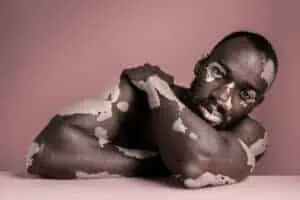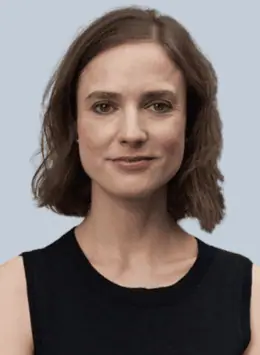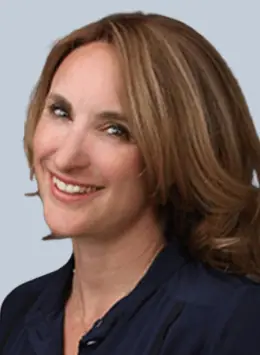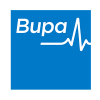Varicose Veins
Home » Conditions » Varicose Veins
Explore Varicose Veins Solutions
Not sure about your condition? Get in touch now, there is no reason for you to wait.
Award winning dermatology service, with over 20 years of experience
Short waiting lists, on some occasions offering same week appointments
Safe environment, in Care Quality Commission approved facilities
varicose vein treatment london
Varicose veins are swollen, enlarged veins, often seen in the legs and feet, which appear lumpy, twisted and are blue or dark purple in colour. Varicose veins result from problems with the drainage of blood where values in our veins don’t close properly, causing blood to flow back into the legs and pools in the veins which then become distended due to increased pressure. These veins aren’t only visible, but also painful as symptoms include tired, heavy, throbbing legs and swollen feet and ankles. The skin around the affected vein may be dry and itchy and muscle cramp is common, particularly at night.
Up to 40% of women and 20% of men suffer from symptoms of varicose veins, making the disease of the veins one of the most prevalent conditions today. Varicose veins are caused by weak vein walls and valves. Women are more likely to have varicose veins, particularly as being pregnant leads to an increased risk. Old age, being overweight and long periods of standing also increase your risk of developing varicose veins.
HOW ARE VARICOSE VEINS TREATED?
The earlier vein impairment is identified, the lower the risks. Varicose veins are often treated for aesthetic reasons. However, treatment is also highly advisable if they are causing pain or discomfort or are likely to lead to other health complications such as skin ulcers. Medical complications caused by varicose veins may be severe and can be avoided in most cases if the condition is treated in time.
The first line of treatment is often compression stockings which work by reducing the width of the vein by applying external pressure. However these are not suitable for everyone and it’s not known if compression stockings help to prevent your varicose veins from getting worse or if they prevent new ones from appearing. We have a number of ways in which we can treat varicose veins in Oxford and Cheltenham, during your consultation your condition will be assessed and the best treatment for you will be advised.
VASCULAR LASER
Vascular laser treatment is a revolutionary and minimally-invasive procedure that can quickly eliminate the appearance of varicose veins. Pulse dye laser (PDL) technology is one of the leading advancements in this form of treatment, allowing for quick and precise results with minimal risks. The impacted areas are treated with a beam of light that damages and closes off the veins, which are then absorbed by the body. PDL treatments can be done on an outpatient basis, often resulting reduced dampness, pain, itchiness, discomfort, or swelling from the varicose veins within days. This technique provides an effective solution for anyone suffering from varicose veins without requiring general anesthesia or extended recovery time.
SCLEROTHERAPY
THE ELVES RADIAL™ LASER PROCEDURE
MICROSCLEROTHERAPY
PHLEBECTOMY
Phlebectomy, which is also known as stab avulsion, microphlebectomy or ambulatory phlebectomy, is a technique used to remove varicose veins. In this procedure, 1 or 2 tiny cuts are made in the skin, the affected vein is identified, cut and removed through the incisions using a suction device. This treatment can either be carried out using local or general anaesthetic and you may experience some bleeding or bruising in the weeks following treatment.
FREQUENTLY ASKED QUESTIONS
WILL VARICOSE VEINS GO AWAY ON THEIR OWN?
Varicose veins will not go away on their own. There are things you can do at home to help reduce your symptoms such as exercising regularly, avoiding standing up for long periods of time, elevating the affected area when resting or wearing compression stockings. For more severe cases where they are causing you pain or more serious complications could arise, a consultant will recommend a suitable treatment for you.
HOW LONG DOES IT TAKE TO RECOVER FROM VARICOSE VEIN TREATMENT?
Recovery time depends on the treatment type you have had and the amount of veins you have had treated. The ELVeS Radial™ Laser procedure is the treatment of choice for many as it has no recovery time at all with patients able to go back to their normal activities straight after treatment. Other methods such as Sclerotherapy and Phlebectomy, it is recommended to avoid exercise for around 3-5 days following treatment and the bruising should heal around 2-6 weeks later.
Start Your Journey With Us
Please fill in this form and one of our team will give you a call back to arrange a consultation with one of our expert dermatologists.
HEAR FROM OUR PATIENTS
WHY TREAT YOUR VARICOSE VEINS AT THE HARLEY STREET DERMATOLOGY CLINIC?
Having the right dermatologist is important especially when you have a chronic skin condition that will require ongoing treatment. We want you to feel confident that we’re providing you with the best possible care. We also want you to feel as comfortable as possible with your dermatologist.
The Harley Street Dermatology Clinic specialises in conditions affecting the skin, hair and nails. Our goal is to provide all the care that you need when you’re experiencing these kinds of problems. We want to make it easy for you to access the best quality varicose vein treatment in London.
The clinic is conveniently located in Central London, so it’s easy to visit us if you need to see a dermatologist. You will find yourself in a very comfortable and welcoming environment. We have created a relaxing space where you will receive the highest quality of care. We are regulated by the Care Quality Commission, are part of the British Association of Dermatologists and are top rated by patients of Doctify so you can be sure of safe and effective treatment with us.
Latest TREATMENT INSIGHTS AND ADVICE

Winter Skin Conditions
Winter weather can take a heavy toll on our skin. We are constantly stepping between the warm, heated rooms indoors and the cold, dry air outside. We also tend to wrap up more at this time of year, which can cause problems if clothes are

Should You Worry About Sun Damage in Winter?
Sun damage isn’t usually a problem in the UK in winter. The UV rays are not usually strong enough at this time of year to cause sunburn, but they can still affect your skin. Sun damage is responsible for many of the skin conditions treated

Are The Effects of Skin Conditions Underestimated?
Skin conditions can be embarrassing, uncomfortable and tricky to treat, but they are often dismissed as minor or cosmetic problems. It’s time we all took our skin more seriously.








